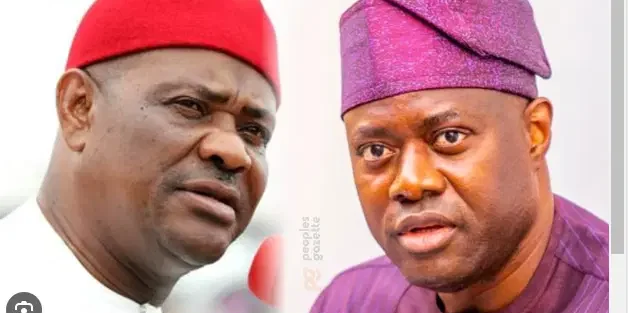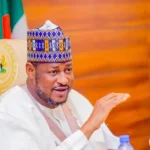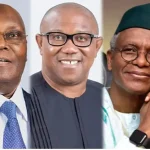
THE Peoples Democratic Party (PDP), once the dominant force in Nigerian politics, is now fighting for its very survival.
Since its crushing defeat in the 2023 general elections, the party has been plagued by internal divisions, leadership disputes, and a desperate attempt to maintain its position as Nigeria’s main opposition party.
At the heart of this turmoil are influential figures whose personal ambitions and grievances threaten to unravel the PDP’s legacy.
One of them is Nyesom Wike, the outspoken former Governor of Rivers State.
Now serving as Minister of the Federal Capital Territory (FCT) under the rival All Progressives Congress (APC), Wike’s ties to another party have sparked controversy and deepened mistrust within the PDP.
Then there’s Seyi Makinde, the Governor of Oyo State.
He has become a rising powerbroker within the party, funding the national secretariat and asserting increasing control over party decisions.
Alongside him, former Senate President Bukola Saraki faces the uphill task of reuniting a party riddled with factions and competing interests.
A critical part of the story is the G5; a bloc once seen as a formidable force within the PDP.
It paraded Wike, Makinde, and former Governors Samuel Ortom (Benue), Okezie Ikpeazu (Abia), and Ifeanyi Ugwuanyi (Enugu).
Before the 2023 elections, they stood together, demanding the resignation of the party’s National Chairman, Iyorchia Ayu. Their aim?
To ensure regional balance after Atiku Abubakar, a northerner, clinched the presidential ticket.
Their unity gave them strength, and that strength gave the PDP conditional hope.
But that unity did not last.
Wike’s decision to back APC candidate Bola Tinubu, a move that secured him a ministerial post, shattered the G5 alliance. What was once a united front collapsed into mutual suspicion.
Many within the PDP saw Wike’s actions as a betrayal, a move that fractured the party further and deepened its leadership crisis.





